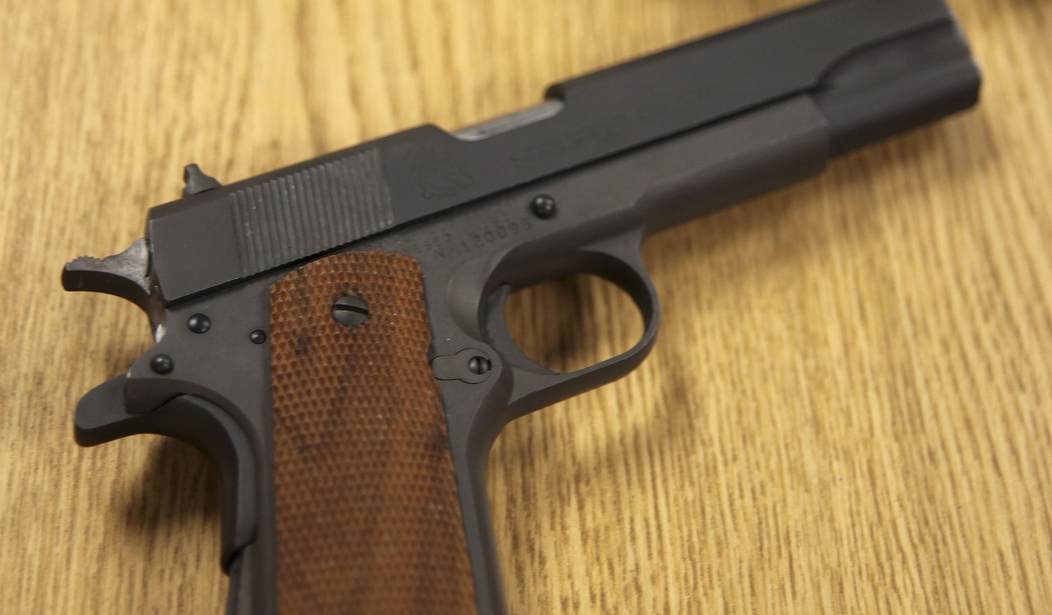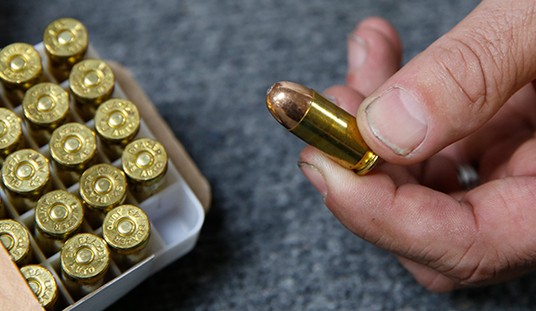Sadly, this isn’t even the first time that the state of Hawaii has put such a dystopian and draconian provision in place. Just last year a federal judge struck down the state’s previous requirement in a case called Yukutake v. Conners, ruling that state laws requiring would-be gun owners to purchase a firearm within 10 days of being approved for a “permit to acquire” and then present that firearm to local law enforcement for inspection violated the Second Amendment rights of Hawaii residents.
Rather than simply take the loss, Democratic lawmakers chose to double down on their efforts, and now Gov. David Ige has signed a new bill that’s only slightly more narrowly focused than the statute struck down in 2021.
Ige signed HB 2075, which requires gun owners to submit to a physical, in-person inspection of purchased firearms if they do not have a serial number, are brought to Hawaii from out of state, or are transferred between private individuals.
The bill states the legislature recognized the ruling in Yukutake v. Connors invalidated its ten-day expiration period for permits to acquire firearms and suspended enforcement of physical gun inspection. However, it wrote:
“While the State’s appeal is pending, the law related to the ten-day permit expiration period continues to be in effect as the court stayed its holding, whereas the physical inspection requirement was not stayed and thus its enforcement is suspended.”
The bill said that the legislature “cannot allow for all firearms to be registered without inspection,” despite the court’s ruling that the physical inspection requirement was unconstitutional.
“Even if the Yukutake ruling is upheld, Hawai’i’s important interest in protecting public safety justifies the physical inspection of certain narrow categories of firearms at the time of registration,” the bill said.
The Yukutake ruling was pretty clear that both the 10-day time frame to purchase a firearm after receiving a permit to acquire and the inspection of firearms itself were both violations of the Second Amendment, even under a lowered “intermediate scrutiny” test. As U.S. District Judge Michael Seabright wrote in his opinion:
In its Amicus Brief, Everytown argues that the State’s in-person inspection and registration requirement falls outside the scope of the Second Amendment as “part of a longstanding regulatory tradition” because it is of a kind with 18th century militia laws.
Those laws required individuals enlisted in state militias—“white men in a specified age range”—to maintain their own arms and “provided for in-person inspection to ensure that militiamen were prepared and properly armed if called up to fight.”
Everytown cites to a variety of state militia laws, as well as federal Militia Acts. In general, as Everytown explains, these laws required periodic inspections of militiamen’s weaponry, with some laws requiring military officials to keep a record of the weapons held by men in their company. Everytown concludes that “[t]he ubiquity of these militia inspection laws means that ordinary citizens in the founding era would have understood a requirement to present arms for inspection to be well within the government’s power—and thus outside the scope of the Second Amendment.”
… But the purpose and scope of these colonial-era militia laws are too dissimilar to the State of Hawaii’s current registration requirement to support such a finding. Although a law need not have a “precise founding-era analogue” in order to be deemed presumptively valid, the law must be sufficiently similar to historical regulations to demonstrate that the law’s restrictions accord with historical understanding of the scope of the Second Amendment right.
n the 18th century, state militias were a primary part of the United States armed forces. And, as Everytown itself explains, the purpose of the militia laws was to ensure that the armed forces maintained weapon stockpiles suitable for the nation’s defense and warfare needs.
Accordingly, many of these laws did not require individuals to register their weapons upon acquiring them, but instead to periodically demonstrate that they maintained weapons of appropriate caliber for military activity. Moreover, each law that Everytown cites applied only to individuals who were enlisted in the militia and to the guns that they possessed for military purposes; Everytown has pointed to no law that required in-person inspection and registration of firearms held by civilians in their personal capacity.
HRS § 134-3(c)’s in-person inspection and registration requirement does not fall within the historical tradition of these 18th century militia laws. Whereas militia laws applied only to militiamen, HRS § 134-3(c)’s requirement applies to all civilians who wish to acquire a handgun for personal use. Likewise, the purpose of the militia inspection laws was to ensure that soldiers had the correct weapons for duty and that those weapons were appropriately maintained for battle.
In contrast, HRS § 134-3(c)’s requirement is meant to serve the Government’s interest—not in military preparedness—but in protecting public safety through “more effective supervision and control over the sale, transfer, and possession of firearms.” And, most significantly, the militia laws did not place a burden on any individual’s ability to acquire a weapon. Indeed, militiamen were required to possess weapons.
In contrast, the State of Hawaii’s law places a burden on the right to acquire handguns by requiring compliance with the in-person inspection and registration requirement in order for civilians to legally possess firearms in the first instance.
Given these considerable differences, the State of Hawaii’s in-person inspection and registration requirement for civilian firearms cannot be said to fall within the historical tradition of colonial-era laws requiring inspection of what were effectively the military weapon stockpiles of the day.
Not only is there no historical analogue for Hawaii’s law, despite Everytown’s claims to the contrary, Seabright noted that the state of Hawaii could provide any justification for the statute other than “we think it’s useful”.
Here, the Government has provided no evidence whatsoever in support of its position. The Government has provided no legislative history speaking to the legislature’s reasons for amending the statute. It has not shown that inaccurate registration was a problem affecting public safety (or even a problem at all) prior to enactment of the 2020 in-person inspection and registration requirement, nor has it provided any studies, examples from other jurisdictions, or any other type of evidence suggesting that an in-person inspection and registration requirement would ameliorate such a problem.
And now Hawaii’s lawmakers are showing their contempt for the court by completely disregarding its ruling in order to put inspections back in place, at least for some lawfully-obtained firearms.
My guess is that this new law will soon be enjoined right along with the statute struck down last year, but that probably won’t stop anti-gun lawmakers from taking another stab at infringing on the rights of law-abiding citizens, especially with gun control groups like Everytown for Gun Safety lining up to lend their support. It’s also worth pointing out that Hawaii’s ridiculous and unconstitutional law still falls under the gun control lobby’s definition of “reasonable,” which, in their view, simply means “any and all anti-gun measures.” The gun control lobby has never seen a restriction it found unreasonable, and sadly, in states like Hawaii they’ve got enough allies in the statehouse to keep putting unreasonable and indefensible infringements on the books.









